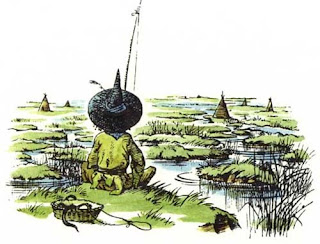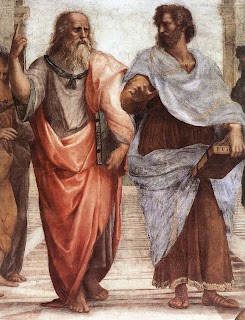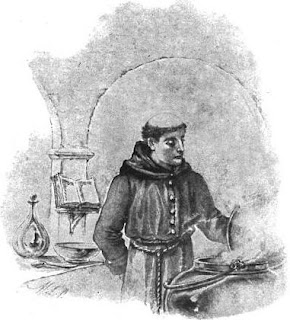Lately I’ve been hearing and reading a lot about what I should do as a follower of Jesus.
I’ve read about persecuted people who live in third-world countries, families who sell their homes so they can adopt more children, young parents who move to the inner city.
When Jesus calls us to abandon everything we have and everything we are, it’s almost as if he is daring us to put ourselves in the flood plain. To put all our lives…all our property and all our possessions…all our hopes and all our dreams in front of the levee and then to ask God to break it. To ask God to sweep away whatever he wants, to leave standing whatever he desires, and to remake our lives…according to his will. ~ Radical by David Platt
We have to continue to fight – for the individual and against evil and destructive forces – because the cause is always worthy. And once you have stepped into this world, you can never walk away. Once you have been made aware, you have a responsibility to care. ~ The Scent of Water by Naomi Zacharias
I’ve read and heard many important and completely true things.
Jesus does ask us to give up everything for Him.
He said that if we do not hate our own lives, our own families in comparison to Him, we cannot follow Him.
Salvation is free, but discipleship costs everything we have. ~ Billy Graham
As I read and listen, guilt begins to trickle into my heart.
Am I doing enough? Am I living right? Am I giving up everything for God? Am I too comfortable in my current life?
This is a dangerous thought-road for me, partly because I am a firstborn and I love rules.
I like lists and I want to know exactly what I have to do to be in obedience to God.
As I begin to think about our family, however, I am reminded of the things that we are doing for Christ.

Having kids at all is a big step. I didn’t always want children, but God convinced me that this was one way in which He wanted me to serve Him: to have and raise up children who will glorify Him with their lives.
We have made a lot of material sacrifices, both for me to stay home with our children, in order to personally raise them in a way that will glorify Him, and for us to not start adding up debt so that eventually we can have disposable income that we can give back to God.
Could we do more?
Of course. And that is the trouble.
No matter how frugally we live, how much we give away, how much time we sacrifice, it can never be enough.
We could always do more. It is impossible to do enough to repay all that God has done for me. It is impossible to truly give up everything for Jesus.
So what do I do? Wallow in my guilt? Give up because of my inability to do or give enough? Is that really what all of these books and teachers are telling me?
No, but I’m afraid that it seems that way at times.
I am learning however, very slowly, that it is not about what I do or don’t do, it is not about what I give or don’t give. It is about a relationship.
My relationship with the Triune God is what is most important in this life. This is more important than giving away all of my possessions. This is more important than eradicating all of the sin in my life. This is more important than moving to the inner city or telling everyone I know about God.
What I focus on most has to be my desire for God.
Love the Lord your God with all your heart and with all your soul and with all your mind and with all your strength. The second is this: Love your neighbor as yourself. There is no commandment greater than these. ~ Mark 12.30-31
The idea of the primacy of loving and desiring God is made more clear in the writings of Brother Lawrence:
I know that for the right practice of it, the heart must be empty of all other things because God will possess the heart alone. As He cannot possess it alone without emptying it of all besides, so, neither can He act there and do in it what He pleases, unless it be left vacant to Him.
You need not cry very loud. He is nearer to us than we are aware. Every one is capable of such familiar conversation with God; some more, some less. He knows what we can do. Let us begin then. Perhaps He expects but one generous resolution on our part. Have courage.
We must know before we can love. In order to know God, we must often think of Him. And when we come to love Him, we shall then also think of Him often, for our heart will be with our treasure.
What do I desire most of all in this life? Whom do I love best?
If it is not God, than it doesn’t matter how radically I live, how much of my time or resources I give away.
If I do desire God most of all, even if I am simply trying to love God best, than I can trust myself to His hands, knowing that He will change my heart, which will naturally change the way I live. I will know what He wants me to do, how He wants me to live, and I will be at peace even if others think I am not doing enough or not doing the right things.
Again, I will reference Brother Lawrence:
when he had failed to love God best of all, he only confessed his fault saying to God, “I shall never do otherwise, if You leave me to myself. It is You who must hinder my failing and mend what is amiss.” Then, after this, he gave himself no further uneasiness about it.
Abba, please help me to desire You most of all, to love You above all. If left to myself, I will never love You. It is You who must mend my broken heart. It is You who must purify my heart so that my life will glorify You. Let me only pursue my love for You and then be at peace, trusting that You will not let me fail.
To him who is able to keep you from stumbling and to present you before his glorious presence without fault and with great joy – to the only God our Savior be glory, majesty, power and authority, through Jesus Christ our Lord, before all ages, now and forevermore! Amen. ~ Jude 1.24-25















